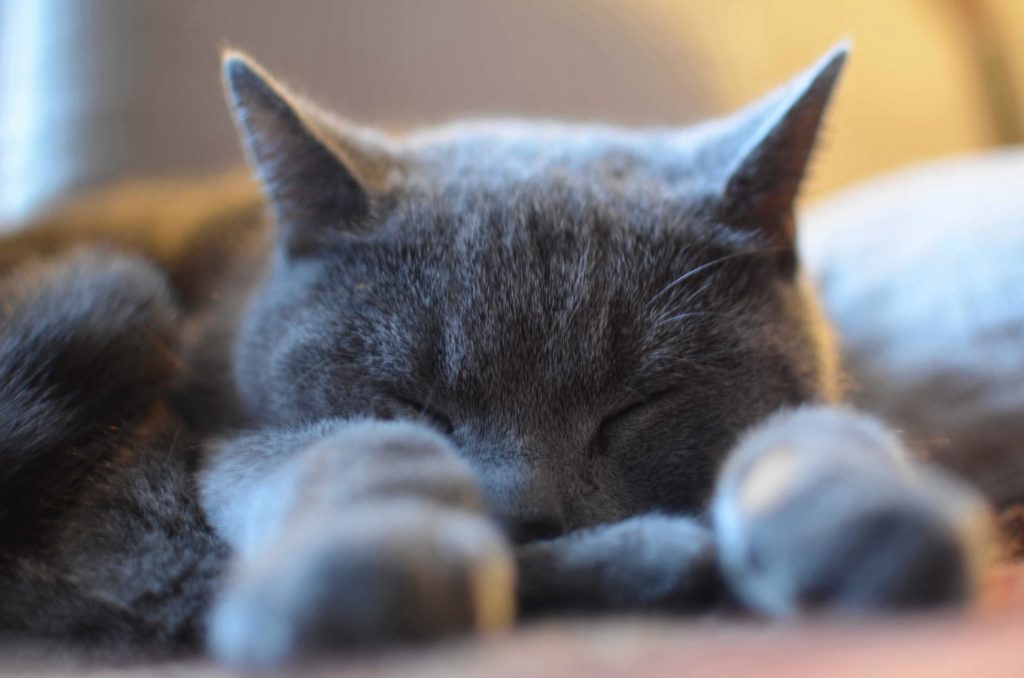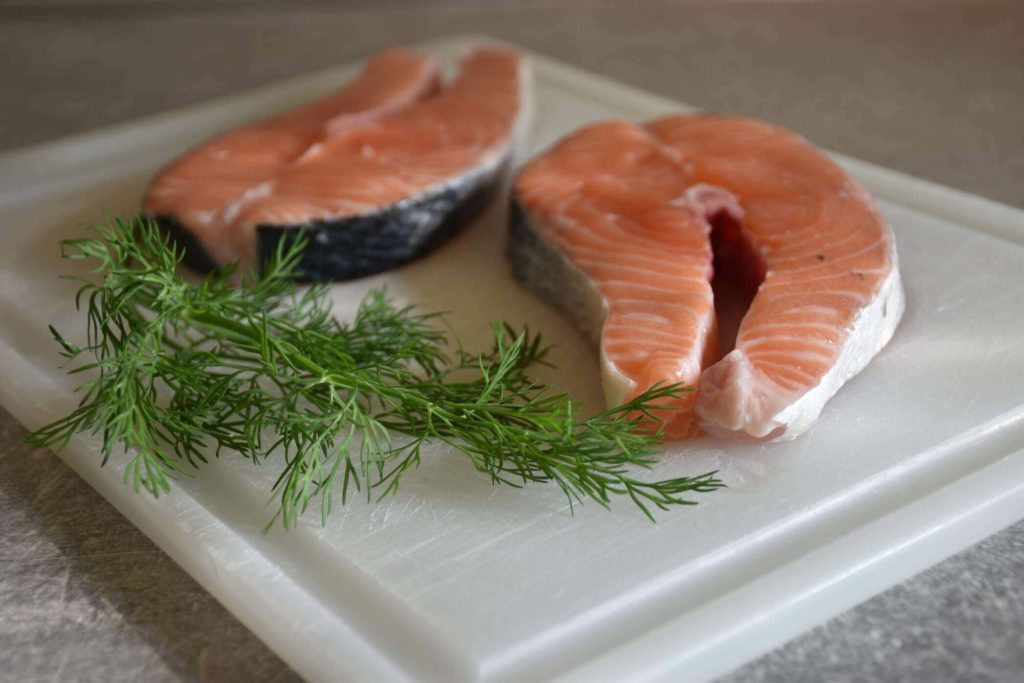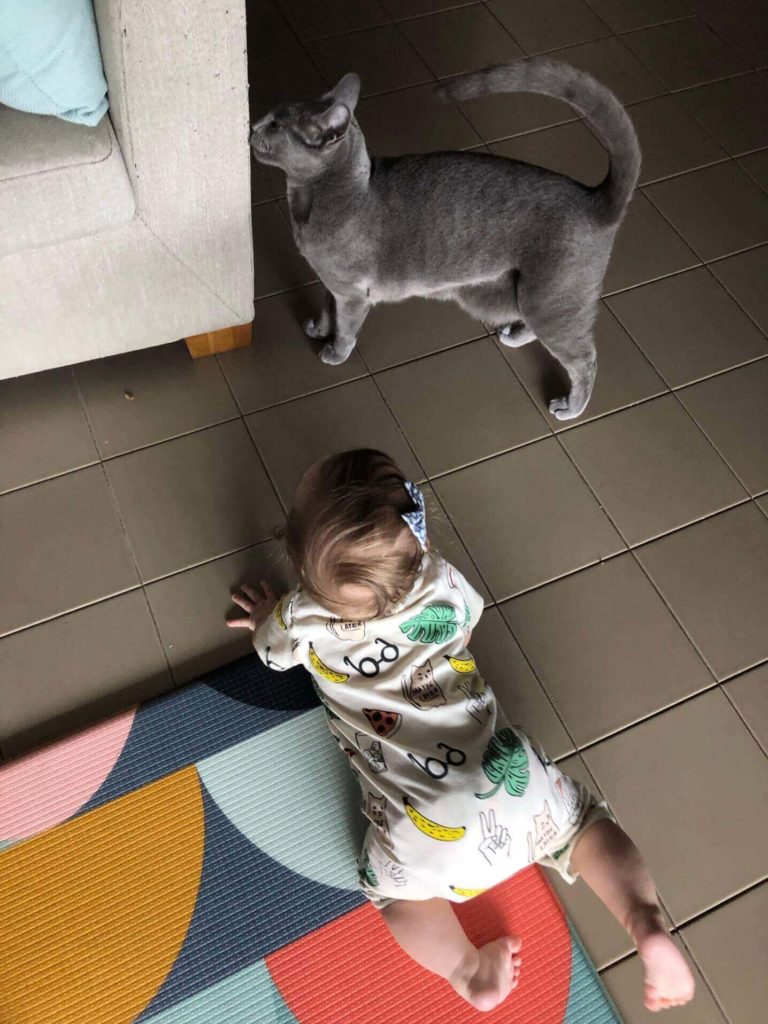Russian Blue cats are known for their love for food and tend to like a variety of meals gradually, but this does not mean they can have whatever edible food available. The same goes for human foods. Dedicated cat lovers know many human foods are toxic to cats (including Russian blue) because our foods have vast nutrition that is different from their needs.
Russian cats obtain most of their nutritional needs from meat rather than plants. When it comes to feeding human foods, many of the fine digestible foods, such as fruits & vegetables, can be fatal to Russian blue over time because they fail to provide proper dietary requirements. However, there are also some foods people eat that you can slowly introduce to your Russian Blue diet.
Russian blue digests differently than humans do and feeding food you like will only put your cats’ health in danger. Even if your cat does eat properly the foods you share, it still can be very unhealthy and also might wreak havoc on your feline digestive system. Just like Junk food for humans!
So, what kind of human food can you safely feed your Russian blue? What is the best human food for Russian blue? Keep reading on to find out the answers.
What Kind of Human Food Can You Feed Your Russian Blue Cat?
Sometimes, cat owners may find premium cat foods expensive to buy, but also not wanting to feed cheap pet food because they feel it would not provide sufficient nutrition. So, the option available will be feeding home food or human food.
Research suggests that a cats’ diet should not contain more than 15 percent of human food while this applies to Russian blue cats too! Even though they love to eat, feeding more food can lead to excessive weight gain and even severe health problems.
While there may be more lists of harmful human foods but with the right kind of food and moderation, you can give your Russian blue proper nutrients and even health benefits. To make it easy for you, Below is the list of human foods that are not only safe but also beneficial for your Russian Blue.
Fruits That Russian Cat Can Eat
Russian cats are obligate carnivores, so fruits are not essential for their diets. But, sometimes, it is seen that they are curious to taste what fruits you are eating. While some fruits are okay to give your Russian blue because they can be a good source of hydration, you still need to feed them in small quantities.
Too much fruit can have a negative effect and also Don’t make a habit! Some fruits you can give your Russian blue includes-
Cantaloupe
When it comes to cat-safe fruits, cantaloupe is one of the best & attractive to many felines, including Russian blue. Cantaloupe, high in antioxidants and has compounds like beta-carotene, which helps maintain your Russian cat skin and eye health. Remove the skin and any seeds before giving them to your cat.
Bananas
Bananas contain potassium, vitamin C, folate & soluble fiber. These nutrients could benefit your Russian blue health by aiding the heart and kidneys but only when not fed in excess. Banana peels are not okay for your cat’s digestive system so remove them. Watch out for any allergic reactions because some can have it.
Pumpkin
Pumpkin is not only low in calories but also has a high water and fiber content that can be an effective treatment for your Russian blue abnormal stools. Slowly introduce the fruit to your cat, and only 1-4 teaspoons is preferred.
Apples
Apples are high in fiber and vitamin C. You can feed your Russian blue apples but in moderation or only sometimes as a treat. Be sure to remove the sliced apple skin, seeds and wash it properly before feeding.
Blueberries
Blueberries, rich in vitamins A and C, are even found in some cats’ food. Though they are healthy and safe for your Russian cat to snack on, you still have to give them in limited amounts. Try 15-20 blueberries and mix & match them with other human or cat foods before serving to your Russian blue. You may also try frozen blueberries.
Tomatoes
Feed red or fully ripe tomatoes to your Russian cat as they are in vitamin C, potassium, and fiber. You can make them safer for your cat to eat by buying organic, washing, or serving cooked ones. Avoid green or unripe tomatoes as your cat won’t find them appealing, and even a small piece can hurt your cat’s stomach.
Mangos
Mangos contain vitamin b-6 & A and also are moisture-rich. Your Russian blue can benefit from these vitamins but as already mentioned above, only in moderate amounts. One to two small cubes twice a week is okay to feed your cat.
There are still some more fruits safe for your Russian blue to feed but above are the preferable names of fruits you can start with if you want to really share with your cat. Serve it just like as treats and slowly. Not too much!
Vegetables That Russian Blue Can Eat
Vegetables may not be necessary for meat-eaters Russian blue, but it may be helpful for your cat to have a healthy weight and lifestyle. By adding some veggies to your Russian cat diet, you can also help it to have a healthy diet.
But Don’t overdo it!
Meat should still be a priority and vegetables as just a supplementary part of your Russian blue diet. There are a wide variety of vegetables that are safe for your cat consumption, but it will be impossible to make a comprehensive list. Hence, below are just the names of the most common vegetables that you can serve your Russian blue that will benefit its health also.
Carrots
Carrots are a great option to serve your Russian blue as they are low in calories and high in fiber, vitamins, calcium, etc. It also benefits your Russian cat teeth while they munch on them. However, cooked carrots should only be serve because raw carrots are hard, rigid, and may also present choking. Besides, it is also important to clean your Russian blue cat teeth after eating.
Broccoli
Safe and easy to prepare, broccoli is another option you can feed your Russian blue if it likes it. Broccoli is a good source of vitamins, dietary fiber, minerals, which benefits your Russian blue health. Also, it contains antioxidants that can help reduce the risk of cancer. However, do not serve with extra spices or any seasoning.
Spinach
Spinach can be a healthy, feline-friendly treat as long as your cat doesn’t have bladder stones or a history of it. Full of vitamins and minerals, including iron and calcium, spinach benefits your cat’s health but should only be offered in small amounts.
Peas
Peas are another safe human food for your Russian blue, and they are high in fiber, with vitamin C & vitamin A richness. They can help Russian cats that suffer from occasional constipation and are also often found in commercial cat foods. You can feed them raw or frozen if your Russian blue eats.
Lettuce
Lettuce is also okay to feed your Russian blue because it provides water and fiber to keep your cat hydrated. Also, it helps in proper digestion.
Some other choices are winter squash, steamed asparagus, zucchini, green beans, potatoes, dandelion, avocados, etc. Even though most vegetables are safe for cat consumption and play a role in a healthy diet, you should still be serving them in small portions. Some veggies are either toxic or difficult for your Russian blue to digest. So, be aware!
Sometimes Russian blue may also like to chew on plants to get roughage or fiber. If your cat does this, keep your houseplants away from it because they can be harmful. Instead, take this as a chance to serve safe veggies to your cat.
Human Protein-filled Foods Russian Blue Cat Can Eat
Since your Russian blue is a meat-eater cat, you might be thinking no harm to give the meats you cooked deliciously to your cat. But! You should be aware of some concerns like serving your cat too much and whether to feed raw or cooked. If you are feeding raw food then there are certain things which you have to look after! which you can find in this article “Can Russian Blue Eat Raw Food?”
In general, meats and other high-protein foods are essential for your Russian blue to thrive, but there are proper ways to prepare and serve your cat. Human proteins sources foods include-
Chicken Meat
Chicken meats are safe for your Russian blue to eat and are a good source of lean protein. They are also low in sodium & fat and can also help support & strengthen your Russian cat immune system.
Most of the commercial cat food also includes chicken. If you are preparing at home by yourself, then plain, boiled chicken (without skin and bones better) with no seasoning is safer and healthy for your cat to eat.
Fish
Fish have omega-3 fatty acids, which help your Russian blue cat’s eyes, arthritis, kidney, and heart stay healthy. Many cat foods also contain fish. Make sure it’s cooked properly or prefer canned fish with water-packed and no salt added. You can try specific cat foods that contain fish and feed just as a treat. Too much fish can deplete your Russian cat supply of vitamin E.
Salmon
Another good source of protein is salmon and is often already found in most cat foods sales. It is a healthy & tasty treat for your cat and strengthens bones & lessens cholesterol. However, avoid feeding raw salmon and offer only in small amounts. There are official online sites where you can buy safe, no clean-up necessary salmon and feed your Russian blue straight.
Eggs
Eggs are a good source of protein and B vitamins for your Russian blue to eat. They also contain essential amino acids responsible for your cats’ mobility and muscle strength.
Feed scrambled or hard-boiled eggs because it is a safer and nutritious treat for your cat. However, serving raw eggs come with a certain level of risk to your Russian cat. Also, watch out for allergic reactions if you feed your cat eggs.
Fish Oils
Fish oil cats supplements are safe to serve your Russian. Due to the presence of omega 3s in fish oils, they can help prevent your Russian blue from dry skin in winter and support coat health. Salmon, cod liver oil are also other options to offer your cat.
Ham
Ham is okay to feed your Russian blue but only in small doses, or you can try out deli ham. It should be cooked and free of seasoning or cooking oils, as those things will harm your cat’s digestive system. Since it is moisture-rich food, it can help your cat stay hydrated.
Other choices are Turkey breast meat cooked, cooked beef & lamb, or small portions of lean deli meats, etc. Your Russian blue diet must have meat-rich food as they cannot survive only on veggies or fruits. The protein from meats plays an essential role in providing good health for your cat.
However, better avoid feeding your Russian blue raw or spoiled foods because if you wouldn’t eat it, better not give it to your cat too! Also, too much feeding can form an obesity problem or even diarrhea in your cat so consider serving only in moderate amounts.
Dairy Products Your Russian Blue Cat Can Eat
As Russian blue cats age, they may become lactose-intolerant, which means consuming any dairy products can harm their health. If you want to test your cat intolerance level, try giving it in tiny amounts first to see how its digestive system will handle it. If there is no reaction within the day, then your cat is okay with occasional dairy treats.
Cheese
Research says that cheese is safe for your Russian blue to eat in small amounts, only if your cat is digesting properly. Experts recommend Hard cheese, like cheddar, Swiss, or Gouda, but you can also try feeding low lactose cheese like cottage cheese. Cheeses are rich in calcium & protein and can be baked into treats or fed raw to your cat in small portions.
Yogurt
Unlike other dairy products, the lactose is less in yogurt, making it safer for your Russian blue. It mainly contains protein, calcium but is also full of probiotics, which are better for a cat’s health. Make sure to use plain yogurt without sweeteners and offer in small doses gradually to avoid an upset stomach.
Sour Cream
If your Russian blue is interested in tasting or is begging, then only feed with a tiny bit of sour cream. See its reaction, and if doing fine, then a couple of licks occasionally is fine.
You can also try giving your Russian blue low-lactose varieties of cheese and milk. Besides, sometimes your Russian blue won’t eat the medicine, then small amounts of dairy products can come in handy to make the cat take its medicine.
Grain Products Your Russian Cat Can Eat
Like many cats, Russian blue tend to like different forms of whole grains like corn, polenta, coarsely ground cornmeal, etc. Brown rice, barley, and wheat berries are other options, but they may need to be mashed first to make them smaller. Millet and couscous are also likely to be eaten by your Russian blue because of its smaller texture.
Ensure that you serve your Russian cat proper cooked grains so that it can properly and fully digest them.
Bread
Baked breadcrumbs are okay for your cat to eat in moderation and are also a good source of protein & fiber. However, regular bread feeding should be a no-no or even replace the meals because it can’t be enough to provide nutrients for your Russian blue needs.
Corn
Corn is not dangerous for your Russian blue to eat in moderate amounts and it is also often used in cat food. Do not let your cat have corn chips as they contain other ingredients that aren’t healthy. Plain popcorn is ok in tiny amounts.
Oatmeal
Oatmeal, a source of energy and B vitamins, is another safe human grain food for your Russian blue. However, your cat may not like it! So before serving, introduce these foods slowly and make sure your cat is eating it properly. Then, only incorporate them into a regular part of your cat’s diet.
Rice
Rice is safe human food and easy to digest as well for your Russian blue cat. It can help feed your Russian blue full in combination with meat. However, make sure the rice is washed & cooked thoroughly and plain without extra ingredients. Only feed one or two small meals of rice.
Your Russian blue diet should only have food with a moderate level of fat and just approximately 1-2 percent carbohydrates content. Not more than this! Because your cat doesn’t have a dietary need for carbohydrates, aka grain foods. So, human grain products should only be served in moderation for your cat to have a balanced diet.
Human Foods Russian Blue Should Avoid At All Cost!
Some foods we eat can be so harmful to cats, but your feline friend doesn’t know which is harmful or toxic. They still beg for the food or want to taste it out of curiosity. So avoid feeding the following human foods and also keep them away from your cat if you want it to have a healthy life.
- Chocolate, xylitol, sweets in general
- Onion, Chives, and Garlic
- Macadamia nuts
- Raisins and Grapes
- Bread Dough
- Alcohol, energy drinks
- Tea, coffee, or any drinks containing caffeine
Summary
While there are many human foods toxic for your Russian blue, there are also some foods safe and beneficial for your cat’s health. Make sure to choose the right kind of Human food for Russian blue and feed in moderation. This way, you can also learn about your Russian blue eating habits, preferences, etc.
Consultation with the vet is more preferred to discuss the right kind of human food to feed your cat. However, your Russian blue should still stick with high-quality cat-designed foods as they are nutritionally balanced, healthy, and have very particular requirements.
Moderation is necessary for almost all things but except, of course, your unconditional love and support for your Russian blue cat.





